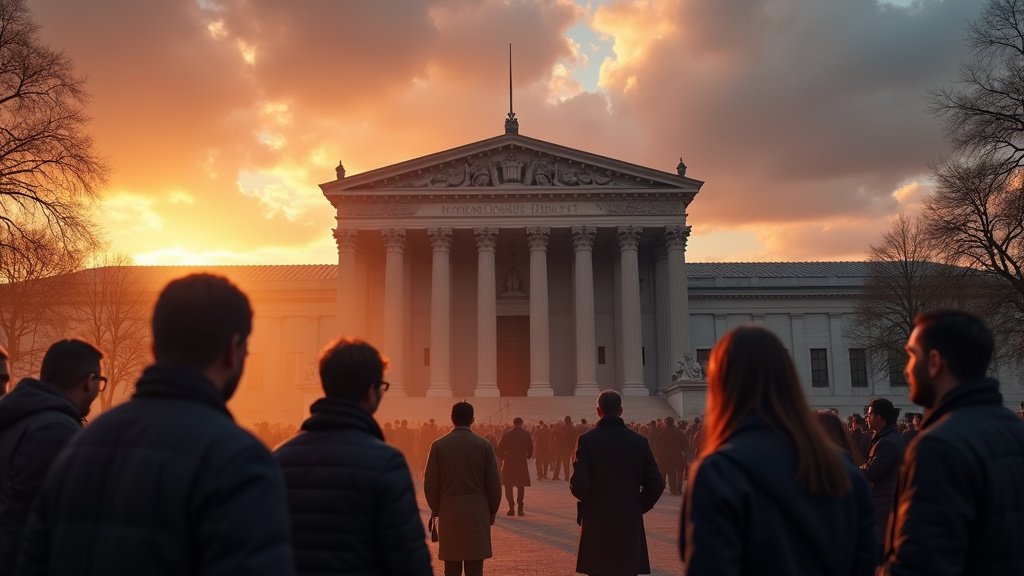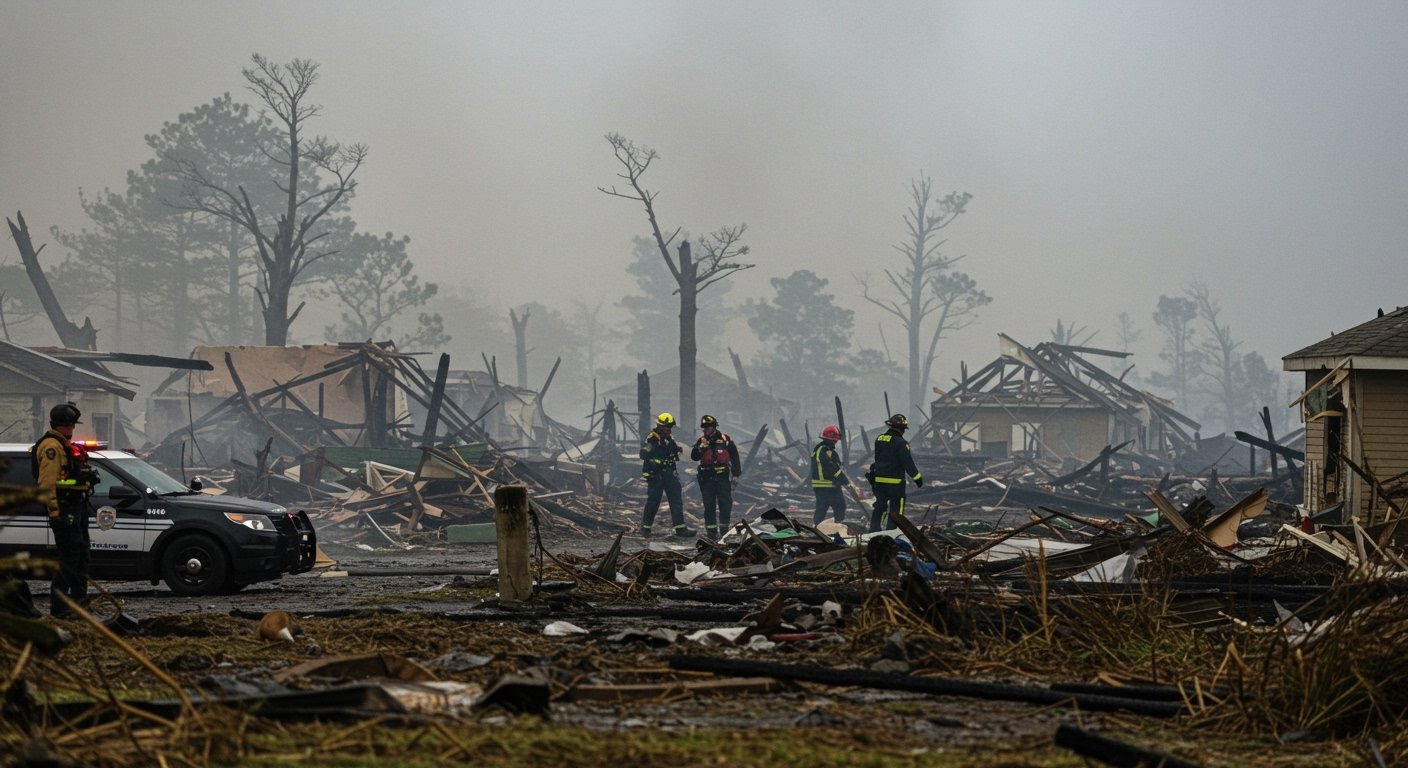The Syrian Arab Republic has initiated a withdrawal of its armed forces from the southern city of Suwayda, a move that comes after a series of events including a wave of Israeli strikes on Damascus and a request from the United States. The pullout, which commenced on July 16, 2025, is a direct consequence of a ceasefire agreement brokered between the Syrian government and local Druze religious leaders. This development marks a significant shift in the dynamics of the region, particularly given the strategic importance of Suwayda and the varying international interests at play.
Background and Context
The city of Suwayda, located in southwestern Syria, is the capital of the Suwayda Governorate and is predominantly inhabited by Druze, an ethnoreligious group with a distinct cultural identity and historical presence in the region. The Druze community has navigated a complex relationship with the Syrian government throughout the years, often seeking to maintain a degree of autonomy while also coexisting within the broader national framework. The recent withdrawal of Syrian army troops, therefore, represents a delicate balance of power and influence in this strategically important area. The location of Suwayda is close to the border with Jordan and is also relatively close to the Israeli border.
Israel, a key player in the geopolitical landscape of the Middle East, has maintained a policy of not allowing Iranian-backed forces or their proxies to establish a permanent military presence in Syria. In recent years, Israel has conducted numerous airstrikes within Syria, targeting what it claims to be Iranian-linked military sites and weapon shipments. These strikes have often occurred near Damascus and other strategic locations, including areas that are near the Druze-populated regions. The Israeli actions have increased tensions in the region and have prompted various diplomatic responses.
The United States, a long-standing ally of Israel, has also been closely monitoring the situation in Syria. The U.S. government has expressed concerns over the ongoing conflict, the humanitarian crisis, and the presence of various armed groups. In its foreign policy efforts, the U.S. government is trying to play a role in de-escalating the tensions while also safeguarding its strategic interests. The U.S. has recently signaled its interest in improving relations with the Syrian government, and this request for the army to withdraw from Suwayda should be viewed in this context.
The Ceasefire Agreement and Withdrawal Process
The withdrawal of the Syrian army from Suwayda is a result of a ceasefire agreement that was reached between the Syrian government and local Druze religious leaders. This agreement provides the framework for the army’s departure and stipulates the terms of the transition of authority and security responsibilities in the city. The details of this agreement, including its specific clauses and guarantees, are not yet fully available. The agreement, however, signifies a collaborative approach to resolving the local issues and maintaining stability. In order to achieve a sustainable solution, all parties have to be aware of the significance of local sensitivities and community needs.
The withdrawal process, which commenced on July 16, 2025, is expected to unfold over a period of time. The army’s departure involves the redeployment of troops, the transfer of military assets, and the establishment of new security arrangements. The local authorities and community leaders are working in partnership to manage the transition, ensuring that there is a smooth handover and minimal disruption to the daily life of the citizens. It is expected that local law enforcement will step in to take charge, along with other local groups, such as the Popular Defense Forces.
U.S. Involvement and Regional Implications
The United States has played a critical role in the recent developments in Suwayda. The U.S. request for the Syrian army’s withdrawal underscores its strategic interest in the region and its efforts to stabilize the area. The U.S. government has been trying to renew its relationship with Syria and is keen to promote a climate of peace and cooperation. The U.S. has urged “all parties to deliver on the commitments they have made” in the pursuit of regional stability. This statement reflects the U.S. commitment to encouraging the implementation of the agreements that have been reached.
The withdrawal of the Syrian army from Suwayda is expected to have significant implications for the security situation in the region. The move will inevitably shift the balance of power and influence. The local Druze community is likely to gain greater control over its affairs, while the Syrian government will have reduced influence in the area. The situation may also affect the dynamics between various armed groups and the overall geopolitical landscape.
International Reactions and Future Prospects
The developments in Suwayda have triggered a range of reactions from various international actors. Some nations have welcomed the ceasefire agreement and the withdrawal of the Syrian army as a positive step towards de-escalation and stability. Others have expressed caution, emphasizing the need for a comprehensive resolution of the broader Syrian conflict. The United Nations and other international organizations are also closely monitoring the situation, providing humanitarian assistance, and facilitating dialogue among the parties involved.
The future of Suwayda depends on several factors. The full implementation of the ceasefire agreement, the ability of local leaders to manage the transition, and the involvement of external actors will play a vital role. The Druze community’s ability to maintain stability and self-governance and the Syrian government’s willingness to respect the autonomy of the Druze are critical. The international community is also expected to play a crucial role in offering humanitarian assistance and supporting the peace process.
The recent events surrounding Suwayda reflect the complexities of the Syrian conflict and the multifaceted interests of various actors involved. The army’s withdrawal and the agreement between the government and local leaders can be regarded as a step forward in bringing stability. It remains to be seen whether this development will set the foundation for a broader resolution of the conflict in the region or simply be a temporary measure. The international community, local community, and government officials will need to work together to achieve a peaceful and sustainable outcome for Suwayda and its residents.











